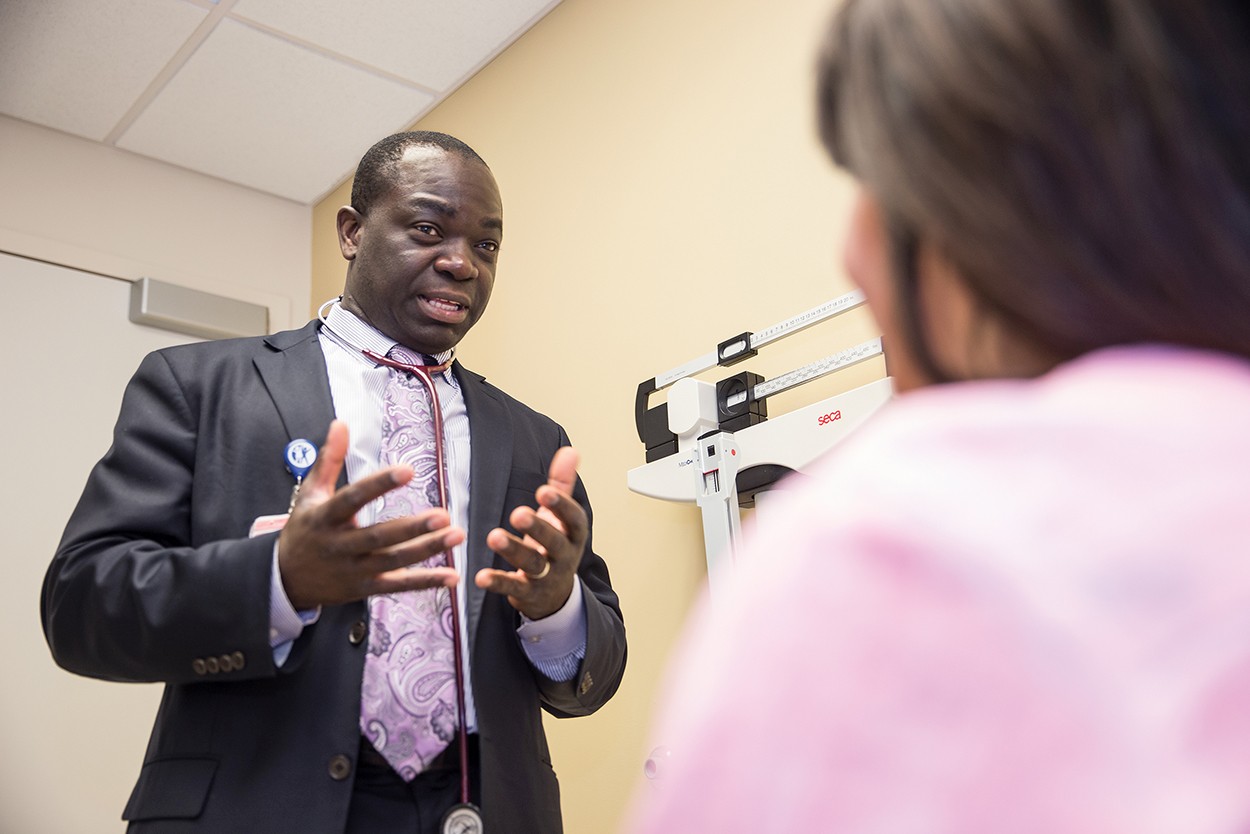Community Health

As a premier public, urban research university, we have a responsibility to leverage and align the expertise of the university with strengths of the community to address issues related to the health and well-being of our region. The Community Health Pathway serves as a crossing point between the University of Cincinnati and the community to help build health solutions and build a workforce that will improve the lives of Cincinnati residents. We work across the university to advance health and well-being in the Greater Cincinnati region through funding opportunities, programs, and events that are designed to facilitate community collaboration and partnership.
Vision
To improve the health of our community.
Mission
To utilize the tripartite missions of education, research, and clinical care and leverage the resources of the University of Cincinnati to lower the cancer burden and improve the health of our community.
Impact
- Expand the healthcare, bioscience, and public health workforce
- Grow research profile in cancer in our quest toward NCI designation
- Enhance cancer care in the community
- Close health gaps in the community
Our Focus Areas
As urban living becomes the predominant influence for most of the world’s population, environmental, social, cultural, and economic factors affect the health of individuals at every stage of life. Like other cities, the city of Cincinnati is faced with many health challenges across its fifty-two neighborhoods. The Community Health Pathway focuses on the unique health challenges and conditions associated with urban life.
Cancer
With a shared vision to turn the tide against cancer, the University of Cincinnati, UC Health, and Cincinnati Children's partnered to form the University of Cincinnati Cancer Center. As a unified cancer center, we are committed to delivering breakthrough research, compassionate care, and evidence-based training to achieve the best health outcomes in the region.
Center for Public Health
A new Center for Public Health will foster a collaborative framework of shared governance across the university, guiding the education, research, and service missions of Public Health Programs. Committed to achieving unified accreditation, expanding undergraduate and graduate offerings, and growing enrollment, the Center will also enhance morale, cohesion, and a shared sense of purpose. Additionally, it will strengthen faculty recruitment efforts, attracting outstanding public health professionals to UC.
Community Health Engagement
Community health engagement is a shared leadership between the Community Health Pathway and the community. Our community is central to ensuring a positive impact on the health and well-being of our residents. Through social mobilization, health education and promotion, community-engaged research, and intervention, we can address the social determinants of health and begin to address health inequities in our community.
Contact Us

Greg Postel
Sr. Vice President for Health Affairs & Dean of the College of Medicine